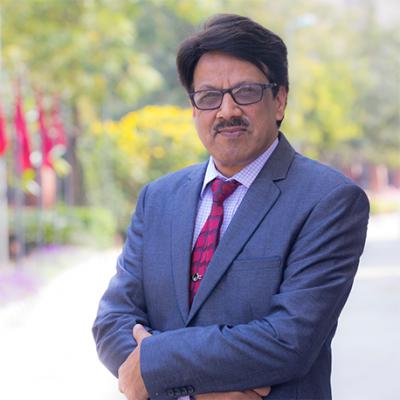Interview GS Bajpai, Vice-Chancellor of Rajiv Gandhi National University of Law
---
The Impact Lawyers publishes a series of interviews with deans of the world's leading law schools. On this occasion, GS Bajpai, Vice-Chancellor of Rajiv Gandhi National University of Law of Patiala answers the questions in this interview
1. What are the main differences between the teaching methods used in law studies at the leading universities in the world that you know of?
A considerable emphasis is being laid on the methods of the teaching special in National Law Universities. This process consists of discussion groups, Courtroom exercises, Filed exercises, legal clinics, simulation, and case study methods. The use of information technology and software is also now increasingly used in teaching pedagogy.
2. In view of the ongoing legal transformation, do you think that different subjects should be taught, such as management, business management or technological skills?
Majority of the top institutes already offer integrated programs of legal education for the students but looking at the current scenario, the study of technological skills has become quite relevant for all the students. The education system is going to be dependent on acquiring new technological skills by the trainer and the taught.
3. In your opinion, is it advisable for law students to specialise in a specific area of law while still at university or, on the contrary, do you think that specialisation is a process that should be followed after graduating?
The students are more equipped to follow their profession if they have a specialization during the graduation program itself. Opting for a specialization during the Under graduate course gives them more space and time to pursue in a particular field, learn the skills related to it and polish it further through a post-graduation program.
4. Do you think it is advisable for practising lawyers to form part of the teaching staff at universities, or do you think it is better for university lecturers to devote themselves exclusively to training?
Both these components are required for a holistic learning imparted by the universities. The practical nuances of law can very well be explained and taught by the practicing lawyer and at the same time well trained teachers can impart lectures based on new techniques and with updated knowledge.
5. On average, how long does it take for a recent law graduate to find a job in your country?
This depends on the kind of Job the candidate is searching for. The students become eligible to practice as lawyers immediately after their graduation but for a student pursuing administrative or judicial opportunities it may be dependent on the perquisites of the job.
6. In your opinion, which legal systems are more effective, those based on "Common Law" or those based on the influence of “Civil Law”?
In my opinion both the legal Systems have their own benefits. In the common law system, the parties are encouraged to contest the case and hence their say and involvement with an impartial judge in the trial court is something quite consistent with a right based approach in this legal system. Moreover, the judges have greater opportunities in this system to fine tune the standards of law and justice and the judicial opinions.
7. What sanctions are imposed on students caught cheating at your university?
Our University has a centralized system of examination which has duly framed regulations for the candidates caught cheating under the Unfair Means Case category. The sanctions are decided by the committee constituted by the University depending upon the degree of cheating involved and other facts of the case.
8. Finally, how would you define the principle of equity?
Principle of Equity signifies the presence of equal opportunity for one and all. All the students are given equal opportunity and equal rights to learn and grow in a safe, free and secure environment.
Related links
Main menu






